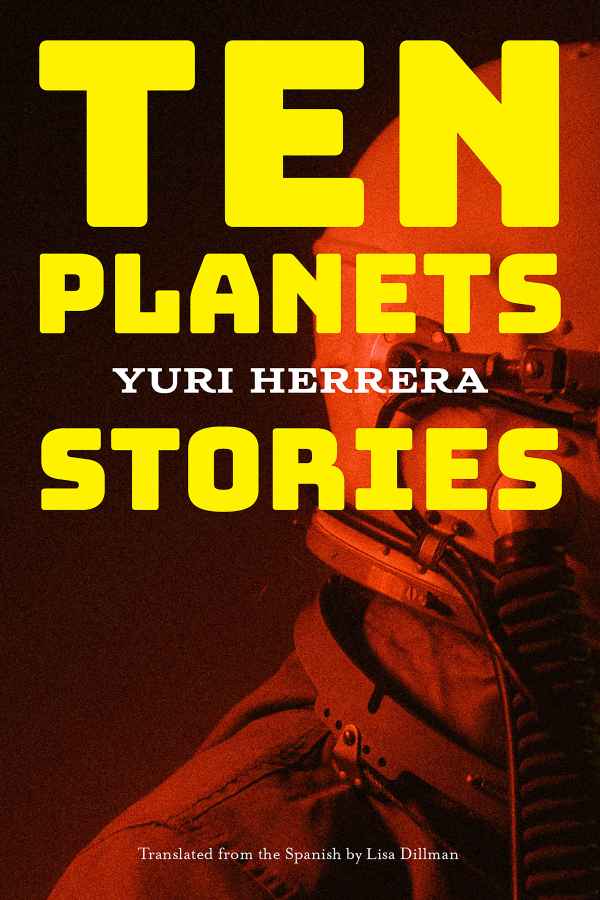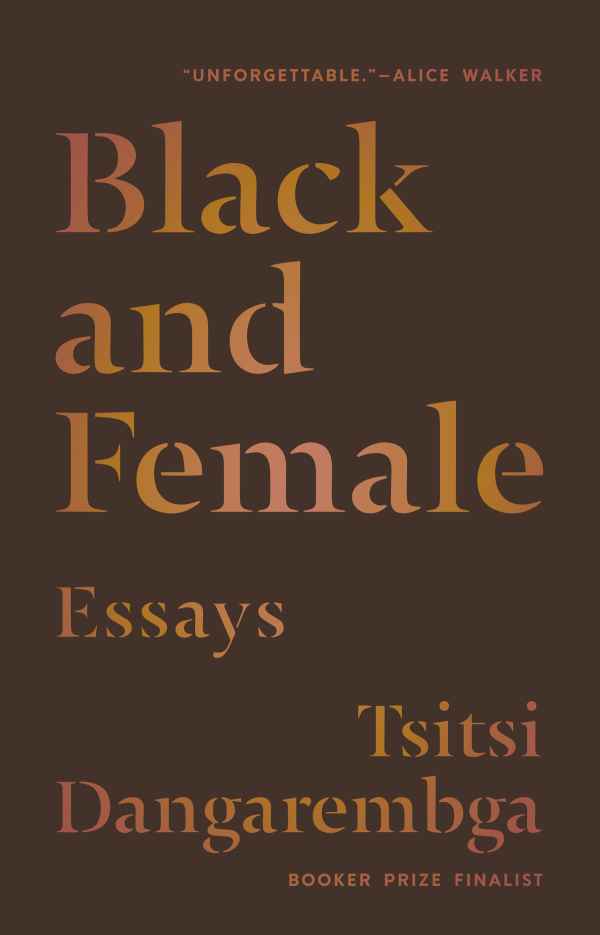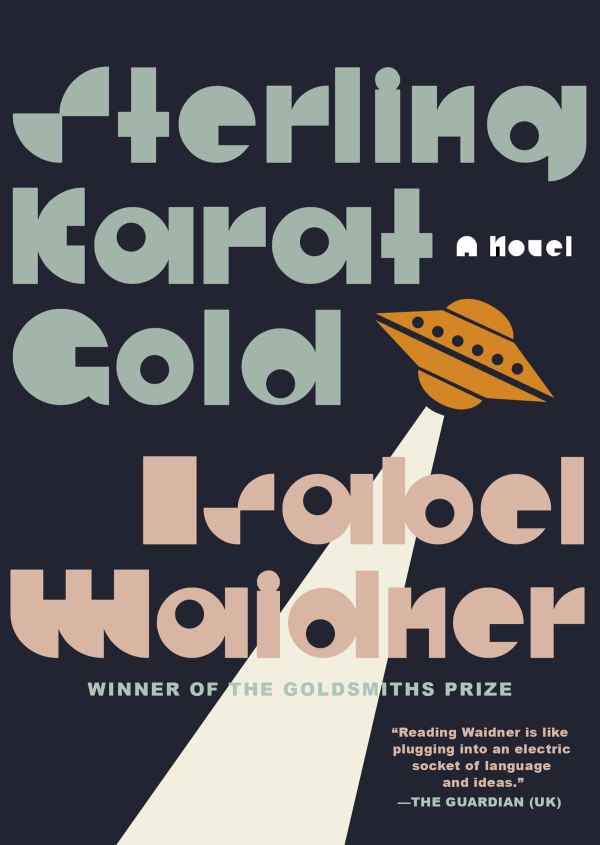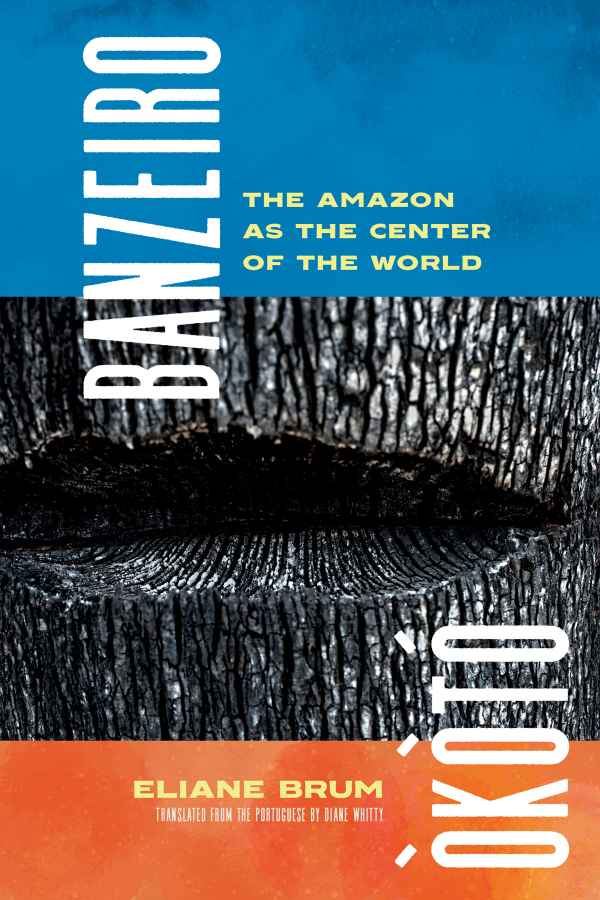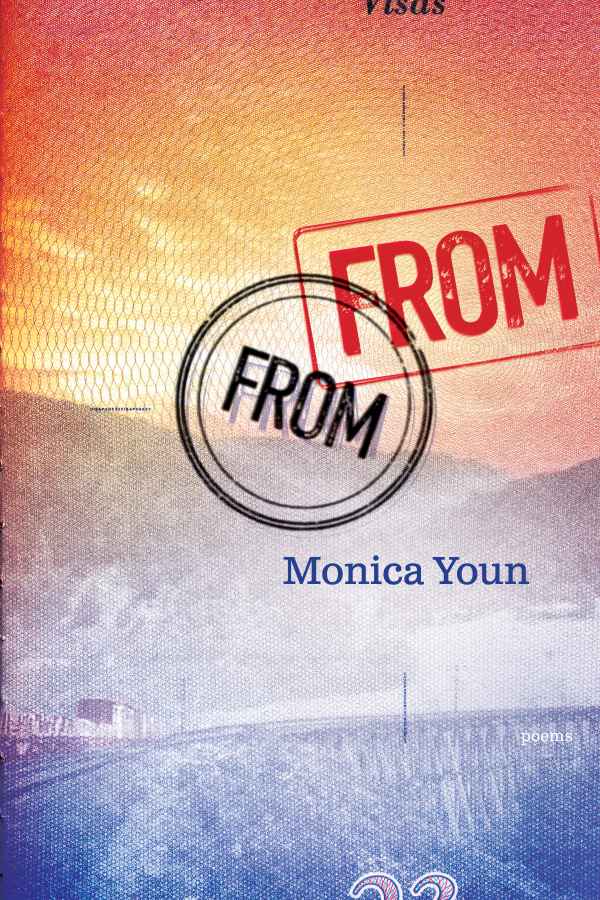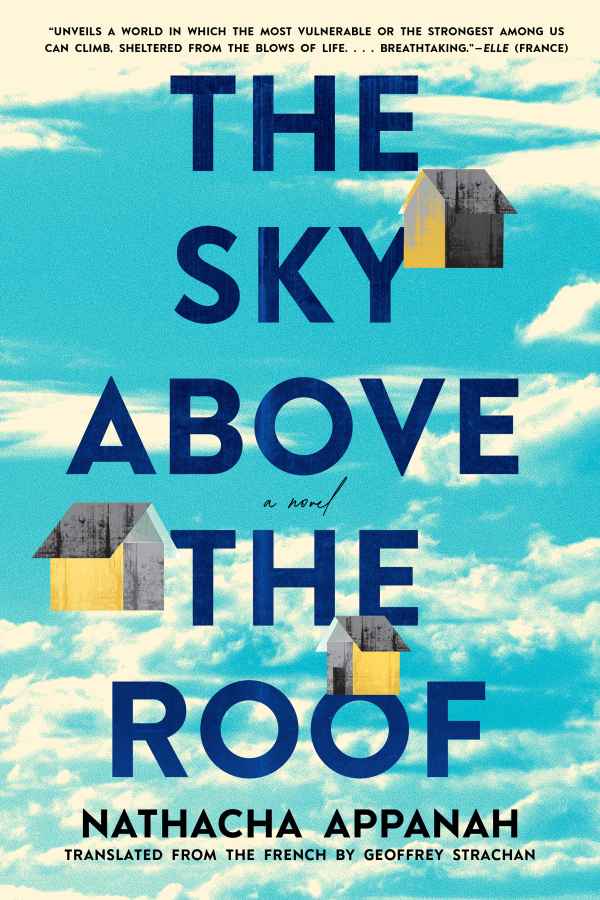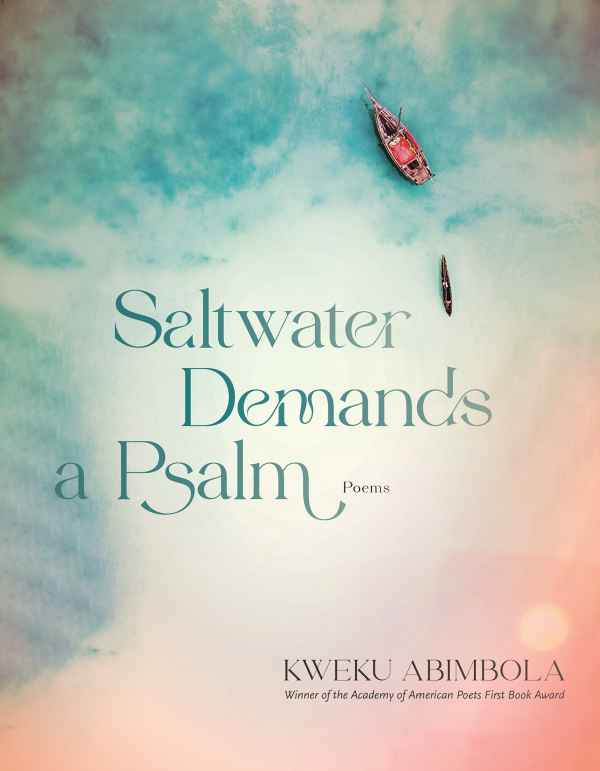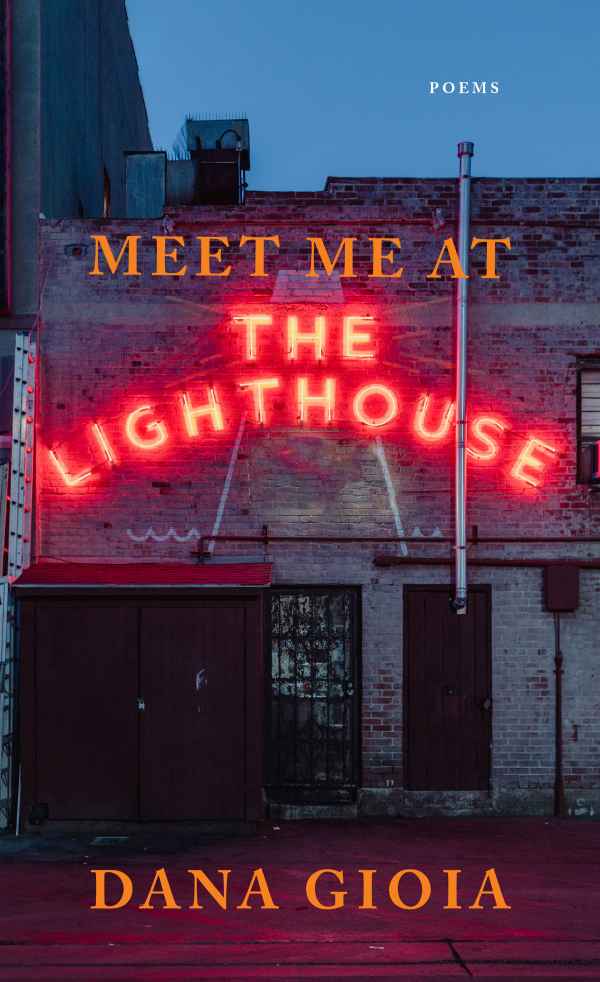Winter 2023 Catalog
Ten Planets: Stories
by Yuri Herrera; translated from the Spanish by Lisa Dillman
Publication Date March 21 Fiction
A collection of fanciful, philosophical science fictions by “one of Mexico’s finest novelists” (Vulture)
The characters that populate Yuri Herrera’s surprising new story collection inhabit imagined futures that reveal the strangeness and instability of the present. Drawing on science fiction, noir, and the philosophical parables of Jorge Luis Borges’s Fictions and Italo Calvino’s Cosmicomics, these very short stories are an inspired extension of this significant writer’s work.
In Ten Planets, objects can be sentient and might rebel against the unhappy human family to which they are attached. A detective of sorts finds clues to buried secrets by studying the noses of his clients, which he insists are covert maps. A meager bacterium in a human intestine gains consciousness when a psychotropic drug is ingested. Monsters and aliens abound, but in the fiction of Yuri Herrera, knowing who is the monster and who the alien is a tricky proposition.
In Ten Planets, Herrera’s consistent themes—the mutability of borders, the wounds and legacy of colonial violence, and a deep love of storytelling in all its forms—are explored with evident brilliance and delight.
Born in Actopan, Mexico, Yuri Herrera is the author of three novels, including Signs Preceding the End of the World, which was one of the Guardian’s “100 Best Books of the 21st Century” and won the Best Translated Book Award. He teaches at Tulane University in New Orleans.
Ten Planets: Stories by Yuri Herrera
March 21, 2023
978-1-64445-223-3
Paperback $15
112 pages 5.5 " x 8.25"
Brit.: And Other Stories Trans., dram.: MB Agencia Literaria 1st ser., audio: Graywolf Press
Black and Female: Essays
by Tsitsi Dangarembga
Publication Date January 17 Nonfiction
A landmark collection of essays about writing, feminism, and colonialism by the author of This Mournable Body
The first wound for all of us who are classified as “black” is empire.
In Black and Female, Tsitsi Dangarembga examines the legacy of imperialism on her own life and on every aspect of black embodied African life.
This paradigm-shifting essay collection weaves the personal and political in an illuminating exploration of race and gender. Dangarembga recounts a painful separation from her parents as a toddler, connecting this experience to the ruptures caused in Africa by human trafficking and enslavement. She argues that, after independence, the ruling party in Zimbabwe only performed inclusion for women while silencing the work of self-actualized feminists. She describes her struggles to realize her ambitions in theater, film, and literature, laying out the long path to the publication of her novels.
At once philosophical, intimate, and urgent, Black and Female is a powerful testimony of the pervasive and long-lasting effects of racism and patriarchy that provides an ultimately hopeful vision for change. Black feminists are “the status quo’s worst nightmare,” Dangarembga writes, “our conviction is deep, bolstered by a vivid imagination that reminds us that other realities are possible beyond the one that obtains.”
Tsitsi Dangarembga is the author of This Mournable Body, short-listed for the Booker Prize, and two previous novels including Nervous Conditions, winner of the Commonwealth Writers Prize. She is also a filmmaker, playwright, and the director and founder of the Institute of Creative Arts for Progress in Africa Trust. She lives in Harare, Zimbabwe.
Black and Female: Essays by Tsitsi Dangarembga
January 17, 2023
978-1-64445-211-0
Hardcover $23
168 pages 4.5 " x 7"
Brit., trans., dram.: Faber & Faber 1st ser., audio.: Graywolf Press
Sterling Karat Gold
by Isabel Waidner
Publication Date February 7 Fiction
Like Franz Kafka’s The Trial for the post-truth era, at once “surreal, polemical, and fun” (The Telegraph UK)
Sterling Beckenbauer is plunged into a terrifying and nonsensical world one morning when they are attacked, then unfairly arrested, in their neighborhood in London. With the help of their friends, Sterling hosts a trial of their own in order to exonerate themselves and to hold the powers that be to account.
Sterling Karat Gold, in the words of Kamila Shamsie, is “a madly brilliant and deeply sane novel that reveals surrealism as possibly the most effective way of talking about the political moment we find ourselves in.” In it, Isabel Waidner concocts a world replete with bullfighters, high fashion, DIY theater, the Beach Boys, and time-traveling spaceships. The acclaimed winner of the 2021 Goldsmiths Prize for fiction that breaks the mold and extends the possibilities of the form, this novel explores the phantasmagoric nature of contemporary life, especially for nonbinary migrants, and daringly revises how solidarity and justice might be sought and won. Sterling Karat Gold couldn’t be a better North American introduction to a writer with an irresistible style and unforgettable vision.
Isabel Waidner is a critical theorist and the award-winning author of We Are Made of Diamond Stuff and Gaudy Bauble. They cofounded the reading series Queers Read This and edited Liberating the Canon: An Anthology of Innovative Writing.
Sterling Karat Gold by Isabel Waidner
February 7, 2023
978-1-64445-213-4
Paperback $16
192 pages 5 " x 8"
Brit., trans., dram.: Peninsula Press 1st ser., audio: Graywolf Press
Voyager: Constellations of Memory
by Nona Fernández; translated from the Spanish by Natasha Wimmer
Publication date February 21 Nonfiction
A startling book-length essay, at once grand and intimate, from National Book Award finalist Nona Fernández
Voyager begins with Nona Fernández accompanying her elderly mother to the doctor to seek an explanation for her frequent falls and inability to remember what preceded them. As the author stares at the image of her mother’s brain scan, it occurs to her that the electrical signals shown on the screen resemble the night sky.
Inspired by the mission of the Voyager spacecrafts, Fernández begins a process of observation and documentation. She describes a recent trip to the remote Atacama desert—one of the world’s best spots for astronomical observation—to join people who, like her, hope to dispel the mythologized history of Chile’s new democracy. Weaving together the story of her mother’s illness with the story of her country and of the cosmos itself, Fernández braids astronomy and astrology, neuroscience and memory, family history and national history into this brief but intensely imagined autobiographical essay. Scrutinizing the mechanisms of personal, civic, and stellar memory, she insists on preserving the truth of what we’ve seen and experienced, and finding ways to recover what people and countries often prefer to forget.
In Voyager, Fernández finds a new container for her profound and surreal reckonings with the past. One of the great chroniclers of our day, she has written a rich and resonant book.
Nona Fernández was born in Santiago, Chile. She is an actress and writer, and has published two plays, a collection of short stories, and six novels, including Space Invaders and The Twilight Zone, which was a finalist for the National Book Award.
Voyager: Constellations of Memory by Nona Fernández
February 21, 2023
978-1-64445-217-2
Paperback $15
136 pages 5 " x 7.5"
Brit.: Daunt Books Publishing Trans., dram.: Ampi Margini 1st ser., audio: Graywolf Press
Banzeiro Òkòtó: The Amazon as the Center of the World
by Eliane Brum; translated from the Portuguese by Diane Whitty
Publication date March 7 Nonfiction
A confrontation with the destruction of the Amazon by a writer who moved her life into the heart of the forest
In lyrical, impassioned prose, Eliane Brum recounts her move from São Paulo to Altamira, a city along the Xingu River that has been devastated by the construction of one of the largest dams in the world. In community with the human and more-than-human world of the Amazon, Brum seeks to “reforest” herself while building relationships with forest peoples who carry both the scars and the resistance of the forest in their bodies. Weaving together the lived stories of the region and its history of violent corruption and destruction, Banzeiro Òkòtó is a call for radical change, for the creation of a new kind of human being capable of facing the potential extinction of our species. In it, Brum reveals the direct links between structural inequities rooted in gender, race, class, and even species, and the suffering that capitalism and climate breakdown wreak on those who are least responsible for them.
The title Banzeiro Òkòtó features words from two cultural and linguistic traditions: banzeiro is what the Amazon people call the place where the river turns into a fearsome vortex, and òkòtó is the Yoruba word for a shell that spirals outward into infinity. Like the Xingu River, turning as it flows, this book is a fierce document of transformation arguing for the centrality of the Amazon to all our lives.
Eliane Brum is an award-winning Brazilian journalist, writer, and documentarist. Her first work of nonfiction to be translated into English, The Collector of Leftover Souls, was long-listed for the National Book Award. She lives in Altamira, in the Amazon.
Banzeiro Òkòtó: The Amazon as the Center of the World by Eliane Brum
March, 7 2023
978-1-64445-219-6
Paperback $18
416 pages 5.5 " x 8.25"
Brit., 1st ser., audio: Graywolf Press Trans., dram.: Indent Literary Agency
From From
by Monica Youn
Publication date March 7 Poetry
A major achievement by Monica Youn, "one of the most consistently innovative poets working today" (NPR)
“Where are you from . . . ? No—where are you from from?” It’s a question every Asian American gets asked as part of an incessant chorus saying you’ll never belong here, you’re a perpetual foreigner, you’ll always be seen as an alien, an object, or a threat.
Monica Youn’s From From brilliantly evokes the conflicted consciousness of deracination. If you have no core of “authenticity,” no experience of your so-called homeland, how do you piece together an Asian American identity out of Westerners’ ideas about Asians? Your sense of yourself is part stereotype, part aspiration, part guilt. In this dazzling collection, one sequence deconstructs the sounds and letters of the word “deracinations” to create a sonic landscape of micro- and macroaggressions, assimilation, and self-doubt. A kaleidoscopic personal essay explores the racial positioning of Asian Americans and the epidemic of anti-Asian hate. Several poems titled “Study of Two Figures” anatomize and dissect the Asian other: Midas the striving, nouveau-riche father; Dr. Seuss and the imaginary daughter Chrysanthemum-Pearl he invented while authoring his anti-Japanese propaganda campaign; Pasiphaë, mother of the minotaur, and Sado, the eighteenth-century Korean prince, both condemned to containers allegorical and actual.
From From is an extraordinary collection by a poet whose daring and inventive works are among the most vital in contemporary literature.
Monica Youn is the author of three previous poetry collections: Blackacre, a finalist for the National Book Critics Circle Award; Barter; and Ignatz, a finalist for the National Book Award. The daughter of Korean immigrants and a former lawyer, she teaches at Princeton University.
From From by Monica Youn
March 7, 2023
978-1-64445-221-9
Paperback $17
136 pages 6.5 " x 9"
Brit., trans., audio, dram.: Graywolf Press 1st ser.: Author c/o Graywolf Press
The Sky above the Roof
by Nathacha Appanah; translated from the French by Geoffrey Strachan
Publication date April 4 Fiction
A propulsive, kaleidoscopic novel about a fractured family and the persistence of hope
It all begins with a crash.
One night, seventeen-year-old Wolf steals his mother’s car and drives six hundred kilometers in search of his sister, who left home ten years ago. Unlicensed and on edge, he veers onto the wrong side of the road and causes an accident. He is arrested and incarcerated, forcing his mother and sister to reconnect and pick up the pieces in order to fight for his release.
What follows is a lyrical, precise, and unflinching account of the events that lead to this moment, told through the alternating perspectives of Wolf’s mother, sister, and grandfather, as well as the doctor who was present at Wolf’s birth. With each chapter, new versions of the story and views of reality unfold, and they fit together like puzzle pieces: in an uncertain order at first, and then slowly falling neatly into place as the pages turn. As details about the characters’ lives and the disconnections in their relationships are revealed, the story becomes even more propulsive, even more compelling.
In this raw and poignant novel, Nathacha Appanah considers how trauma shapes generations and the wounds it leaves behind. The Sky above the Roof is both a portrait of a fractured family and a poetic exploration of the ways we break apart and rebuild.
Nathacha Appanah was born in Mahébourg, Mauritius. She is the award-winning author of Tropic of Violence, Waiting for Tomorrow, and The Last Brother. She works as a journalist and translator and lives in France.
The Sky above the Roof by Nathacha Appanah
April 4, 2023
978-1-64445-225-7
Paperback $15
144 pages 5.5 " x 8.25"
Brit.: MacLehose Press Trans., dram.: Editions Gallimard 1st ser., audio: Graywolf Press
Saltwater Demands a Psalm
by Kweku Abimbola
Publication date April 4 Poetry
Winner of the Academy of American Poets First Book Award, selected by Tyehimba Jess
In Ghana’s Akan tradition, on the eighth day of life a child is named according to the day of the week on which they were born. This marks their true birth. In Kweku Abimbola’s rhapsodic debut, the intimacy of this practice yields an intricately layered poetics of time and body based in Black possibility, ancestry, and joy. While odes and praise songs celebrate rituals of self- and collective-care—of durags, stank faces, and dance—Abimbola’s elegies imagine alternate lives and afterlives for those slain by police, returning to naming as a means of rebirth and reconnection following the lost understanding of time and space that accompanies Black death. Saltwater Demands a Psalm creates a cosmology in search of Black eternity governed by Adinkra symbols—pictographs central to Ghanaian language and culture in their proverbial meanings—and rooted in units of time created from the rhythms of Black life. These poems groove, remix, and recenter African language and spiritual practice to rejoice in liberation’s struggles and triumphs. Abimbola’s poetry invokes the ecstasy and sorrow of saying the names of the departed, of seeing and being seen, of being called and calling back.
Kweku Abimbola earned his MFA in poetry from the University of Michigan's Helen Zell Writers' Program. His work has been published or is forthcoming in Shade Literary Arts, 20.35 Africa, the Common, and elsewhere. He lives in Detroit, Michigan.
Saltwater Demands a Psalm by Kweku Abimbola
April 4, 2023
978-1-64445-227-1
Paperback $16
96 pages 7 " x 9"
Brit., trans., audio, dram.: Graywolf Press 1st ser.: Author c/o Graywolf Press
Meet Me at the Lighthouse
by Dana Gioia
Publication date February 7 Poetry
A wondrous new collection by Dana Gioia, "one of America's premier poets and critics" (Julia Alvarez)
Dana Gioia has been hailed for decades as a master of traditional lyric forms, whose expansive and accessible poems are offerings of rare poignancy and insight. In Meet Me at the Lighthouse, he invites us back to old Los Angeles, where the shabby nightclub of the title beckons us into its noirish immortality. Elsewhere, he laments the once-vibrant neighborhood where he grew up, now bulldozed, and recalls his working-class family of immigrants. Gioia describes a haunting from his mother on his birthday, Christmas Eve. Another poem remembers his uncle, a US Merchant Marine. And “The Ballad of Jesús Ortiz” tells the story of his great-grandfather, a Mexican vaquero who was shot dead at a tavern in Wyoming during a dispute over a bar tab. “I praise my ancestors, the unkillable poor,” Gioia writes. This book is dedicated to their memory.
Including poems, song lyrics, translations, and concluding with an unsettling train ride to the underworld, Meet Me at the Lighthouse is a luminous exploration of nostalgia, mortality, and what makes a life worth living and remembering.
Dana Gioia is an award-winning poet and critic. He has published five celebrated volumes of poetry, including 99 Poems: New & Selected, and three critical collections. For six years he served as Chairman of the National Endowment for the Arts. He is now the Judge Widney Professor of Poetry and Public Culture at the University of Southern California. He is the former Poet Laureate of California.
Meet Me at the Lighthouse by Dana Gioia
February 7, 2023
978-1-64445-215-8
Paperback $16
72 pages 5.5 " x 9"
Brit., trans.: Graywolf Press 1st ser., audio, dram.: Author c/o Graywolf Press
